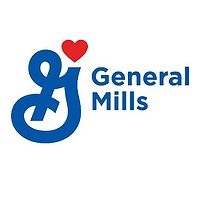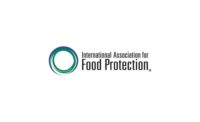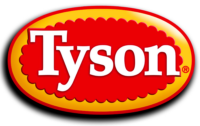Source: Springfield (IL) News-Leader
Wilbur S. Feagan graduated college as an engineer in 1936 at a time when people would get sick from unpasteurized milk. He spent his life not only making milk, but food in general, safer for consumers.
Feagan died March 29 at his Springfield home at the age of 100.
At Feagan’s 100th birthday celebration on Sept. 19 at the White River Conference Center, one gift was a half gallon of Hiland Dairy buttermilk. Feagan often attributed his longevity to consumption of dairy products — and the drinking of buttermilk in particular.
Until a Dec. 10 stroke, Feagan had been driving and going to work daily, said Ed Donnell, who works at F & H Food Equipment Company, in Springfield. Feagan co-founded the company in 1959 with Paul Higley.
One of Feagan’s joys, Donnell said, was visiting the 220-acre farm he purchased for $20 an acre soon after graduating from the University of Illinois. The farm is in Pike County.
“That is one of the things that brought him great pleasure,” Donnell said.
Donnell does not have a title on his F & H business card. The company is employee owned in what’s called an Employee Stock Ownership Plan. The business had been privately held until 1994.
“Wilbur wanted the company to stay in the hands of the employees,” said Donnell, 66. “He did not want somebody to come in and buy it.”
According to Donnell, Feagan always made it clear that employees could take time off work to care for family members or to attend their children’s baseball games.
“He truly wanted other people to do well, and he made sure family came first,” Donnell said.
Soon after college, Feagan worked at the St. Louis Dairy Commission. St. Louis had just passed a Public Health Service Milk Ordinance.
In 1939, the United States Public Health Service considered milk to be such a high health priority that it drafted the Model Milk Health Ordinance and promoted it for adoption by cities across the nation. The major concern was raw, or unpasteurized, milk sold to the public.
In pasteurization, milk is heated to kill bacteria. The process was invented at a time when people often became sick or died of diseases like tuberculosis, scarlet fever or typhoid fever transmitted through raw milk.
Feagan eventually became involved with the International Association for Food Protection, in Des Moines, Iowa. The group’s executive director, David Tharp, said he first met Feagan in 1993.
Feagan had approached the association about creating an annual award to recognize one company a year for outstanding commitment and achievement in the area of food safety. The award, called the Black Pearl, was first given in 1994. Feagan funded it with an endowment of $35,000, Tharp said.
“I think he had a passion for safe food and public health,” Tharp said.
Feagan’s wife, Dora, died in June.
Feagan had said that when his own life wound down, his “F & H family” would take care of him, according to Donnell.
That is what happened after the December stroke. Although Feagan had around-the-clock care, which was paid for, Donnell visited daily, as did several other employees. They would take Feagan for drives or take him to lunch.
Bob Winkler, 65, who works for F & H in St. Louis, knew Feagan for 25 years.
“He is a person we will miss greatly,” Winkler said. “He provided great leadership at F & H. He led by example. I think the success of the company is evidence of Wilbur’s drive, determination and ability.”
Winkler said Feagan was a man of a different era. His preferred method of communication always remained the written letter.
Harold Bengsch, a Greene County commissioner, was the county health director from 1984 to 2004. That’s how he knew Feagan. He lunched with him often.
“One of the things that impressed me most about Wilbur was when you would talk about an issue he would often say, ‘Let’s just take a look back to the ’30s or ’40s. We had something similar happen, and this is how we worked it out.’ ”




